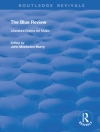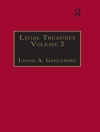’Breathtaking … unlike anything I have ever read before’ – The Guardian
The Burning Secret is a darkly compelling coming-of-age story – a tale of seduction, jealousy and betrayal from the master of the novella, Stefan Zweig.
A suave baron, bored on holiday, takes a fancy to twelve-year-old Edgar’s mother, while the three are holidaying in an Austrian mountain resort. His initial advances rejected, the baron befriends Edgar in order to get closer to the woman he desires. The initially unsuspecting child soon senses something is amiss, but has no idea of the burning secret that is driving the affair, and that will soon change his life for ever.
Zweig – whose life and work inspired Wes Anderson’s The Grand Budapest Hotel – was a wildly popular writer of compelling short fiction. His books will stay with the reader for ever. The Burning Secret is a witty, potent look at innocence, adult attraction and childhood passion.
’Zweig’s time of oblivion is over for good … it’s good to have him back ’ – The New York Times
About the author
Stefan Zweig (1881-1942) was an Austrian novelist, poet, playwright and biographer. Born into an Austrian-Jewish family in 1881, he became a leading figure in Vienna’s cultural world and was famed for his gripping novellas and biographies. At the height of his literary career, in the 1920s and 1930s, he was one of the most popular writers in the world: extremely popular in the United States, South America and Europe – he remains so in continental Europe – however, he was largely ignored by the British public.
Zweig is best known for his novellas (notably The Burning Secret, The Royal Game, Amok, and Letter from an Unknown Woman; novels (Beware of Pity, Confusion, and the posthumously published The Post Office Girl); and his vivid psychological biographical essays on famous writers and thinkers such as Erasmus, Tolstoy, Balzac, Stendhal, Nietzsche, Dostoevsky, Dickens, Freud and Mesmer.
In 1934, with the rise of Nazism, Zweig fled from Salzburg to London, then to New York, and finally to Brazil. Zweig’s memoir, The World of Yesterday, was completed in 1942, one day before Zweig and his second wife were found dead, following an apparent double suicide.
O autorze
Stefan Zweig (1881-1942) was an Austrian novelist, poet, playwright and biographer. Born into an Austrian-Jewish family in 1881, he became a leading figure in Vienna’s cultural world and was famed for his gripping novellas and biographies. At the height of his literary career, in the 1920s and 1930s, he was one of the most popular writers in the world: extremely popular in the United States, South America and Europe – he remains so in continental Europe – however, he was largely ignored by the British public.
Zweig is best known for his novellas (notably The Burning Secret, The Royal Game, Amok, and Letter from an Unknown Woman; novels (Beware of Pity, Confusion, and the posthumously published The Post Office Girl); and his vivid psychological biographical essays on famous writers and thinkers such as Erasmus, Tolstoy, Balzac, Stendhal, Nietzsche, Dostoevsky, Dickens, Freud and Mesmer.
In 1934, with the rise of Nazism, Zweig fled from Salzburg to London, then to New York, and finally to Brazil. Zweig’s memoir, The World of Yesterday, was completed in 1942, one day before Zweig and his second wife were found dead, following an apparent double suicide.












